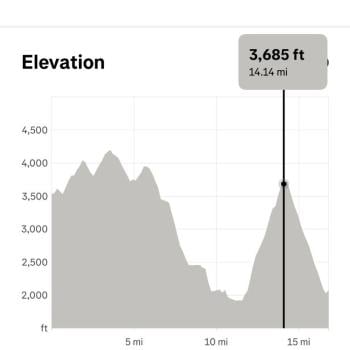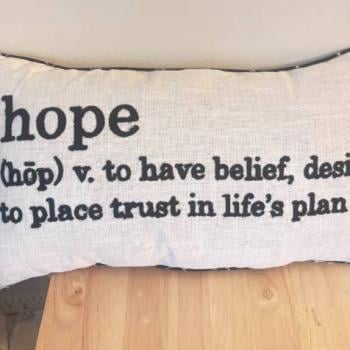Alright! We have made it through January. How is everybody doing with their goals? If you have fallen behind on your goals, remember this, every day is a practice of restarting. Today is a great day to renew those goals.
Dry January
I am taking on a big challenge this year. I have not run a 50k since the 2020 running season. When COVID hit, I like a lot of people got the shots. Something about the second shot changed the way I recovered from heavier workloads. After I had COVID in September 2021, I had increased fatigue and recovery was a huge problem. In the racing year, 2022, I did not complete a single race due to several factors.
As the wave of trail running and eventually gravel cycling washed over the endurance community, we were all introduced to the refreshing taste of a local craft IPA after an event. I was caught up in this wave and enjoyed a craft brew or even a whiskey on the rocks after an event. But what if this along with long COVID was holding me back? After working with a coach in 2022, I drastically changed my diet from a Paleo/Keto to one richer in complex carbs. I also started making a huge reduction in the amount of alcohol I was drinking, going from several beers and glasses of wine a week to just drinking on the weekends.
I have heard about dry January for some time now but never attempted it. As part of my goal this year, I set out to have a dry January to see if it would impact my recovery. The anecdotal answer is not really, I am still tired all the time. I still enjoy an occasional whiskey on the rocks and a nice IPA after a long trail run.
What happens when one stops drinking alcohol for a time?
All is not lost, there is a wealth of research that points to the benefits of giving up alcohol. Dr. Andrew Huberman in 2022 put out a podcast that was the number one downloaded podcast around the idea of giving up alcohol. You can check it out here: https://www.hubermanlab.com/episode/what-alcohol-does-to-your-body-brain-health
According to Huberman, one can see significant improvements in markers of health in the first 2-6 months of ceasing to use alcohol. In an article by BBC Science focus (https://www.sciencefocus.com/the-human-body/stoptober-what-happens-stop-drinking), Dr. Nish Manek points out that within the first few days of stopping alcohol consumption, one’s liver starts repairing itself. Within a week, immune function improves, and cognitive clarity begins to improve as well. Within a few months, liver enzymes improve, mood can improve and weight loss which may have been hard to achieve prior to sobriety may be more achievable.
I can say after a month of no alcohol, while I am still tired all the time, I do feel more mentally clear, and my sleep anecdotally is better according to my Garmin (I also started supplementing with Melatonin).
Why Resolutions Fail
Behavioral change is hard. It takes a good three months just to assimilate to the idea that you are making a change, another 6-9 months to implement the change consistently for it to become a pattern and if you can pull this off for a year to eighteen months, then and only then do you have a change in behavior. In my practice as a therapist, I use the transtheoretical model of change which suggests one must go through five stages in order to make a successful behavioral change:
- Precontemplation: You deny having a problem, but other people may be concerned.
- Contemplation: You think about the pros and cons of change.
- Preparation: You take steps to get ready to make a change.
- Action: You change your behavior.
- Maintenance: You figure out how to stick to your change over the long-term.
With behavioral change, one must expect setbacks and be prepared to start over again. Every starting over is fine, sometimes it is as easy as picking up the pieces and figuring out what went wrong. If say for example, you broke your diet by bingeing on junk food, evaluate what was in your diet nutritionally? Did you get enough fluid, were you dehydrated? Were you getting enough protein? Did you cut out too many calories too soon and your body’s natural equilibrium for the body weight you are at counteract your desire to eat less calories? It is all a balancing act.
Being Statements
I have three sheets of paper taped to my wall in front of my desk. One is entitled 2024 Endurance/ Fun Times and includes all the endurance events I have planned for 2024. This is something I have done to keep me focused since DNF’ing(did not finish) my 100k in 2011. I took that racing bib and taped it above my coffee maker and looked at it every for a year until I ran that 100k in 2012.
The other piece of paper is also taped behind my coffee maker at my house and in my fax cage in my office. It reads:
Waking up at 5 am to train is hard
Saying no to fast food is hard.
Lifting heavy is hard.
But you know what is harder?
Joint pain from being overweight.
Health issues from eating bad.
Being frail and weak.
Choose your hard.
These are my being statements. A being statement is any statement that encapsulates your “why.” Why and how are you showing up as a spouse? A parent? A leader of a company? A team?
I am a big fan of the stoic notion of memento mori. I know tomorrow could be it. How did I live well today? How did I show up? Did I complain that I am tired (actually, I do, and this is something I am focused on accepting).
If you do not have a being statement, write one, put it somewhere and post it where you, and others can see it. Find an accountability partner to keep you focused on the task at hand.
Practices of Becoming
My favorite philosophical thought is this: you have not arrived; you are in the process of becoming.
Every day is the death of yesterday and a time of new beginnings. Thich Nhat Hahn, offers, “waking up this morning, I smile.” I was working with a client recently and they were telling me how terrible the situation was. I asked them to reframe the situation and simply name it as difficult and then move through it.
We can become many things in our life. We can become bitter and angry if we sow the seeds of bitterness and anger into our situations. This is not some Pollyanna notion of avoiding our emotions or denying the gravity of a certain situation. It is acknowledging the situation and understanding it so that we can respond rather than react.
In doing so, we become better, stronger.
Reference:
Manek, N., Dr. (2023, October 2). Stoptober 2024: Here’s what giving up alcohol actually does to your body. BBC Science Focus. Retrieved February 6, 2024, from https://www.sciencefocus.com/the-human-body/stoptober-what-happens-stop-drinking













